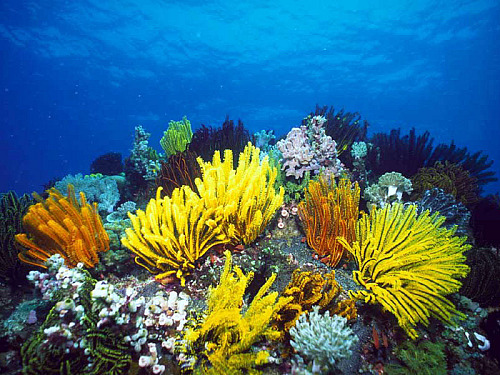The World Wild Fund for Nature (WWF) on Wednesday urged the world to save coral reefs by outlining a study report to the World Ocean Conference in Manado, Indonesia, saying that a region harboring more than half of them were at risk of "major environmental and human catastrophe".
 |
|
File photo: Coral reef |
The report entitled "The Coral Triangle and Climate Change: Ecosystem, People and Societies at Risk" was compiled from research of 20 of the world's leading coral reef scientists. The WWF proposed nine measures for action which it described as urgent.
The nine urgent measures proposed included taking urgent steps to reverse decline in health of coastal ecosystem and reviewing the adequacy of local and national conservation measures in the light of climate change. The report also urged the world to take greater steps to engage coastal communities and stakeholders in protecting their reefs and to build capacity of reef managers to implement necessary changes in reef and fisheries management.
The report coincided with decision of the six of Coral Triangle nations - Indonesia, the Philippines, Malaysia, Papua New Guinea, Timor Leste and the Solomon Islands - to move ahead with the world's largest trans-boundary network of marine protected areas.
Professor Terry Hughes from James Cook University and the Director of the Australian Research Council Center of Excellence for Coral Reef Studies (CoECRS) said that Coral Triangle Initiative (CTI) recognized that the status quo was not an option for the future.
"All countries are seeking to radically improve how coral reefs are managed, so that these critical natural resources can sustain future human development," he said.
The Coral Triangle covers one percent of the Earth surface but contains the richest marine ecosystems on the planet. According to the WWF's data, it is home for 53 percent of the world's coral reefs, including over 80 percent of all reef-building coral species and at least 3,000 species of fish.
(Xinhua News Agency May 13, 2009)